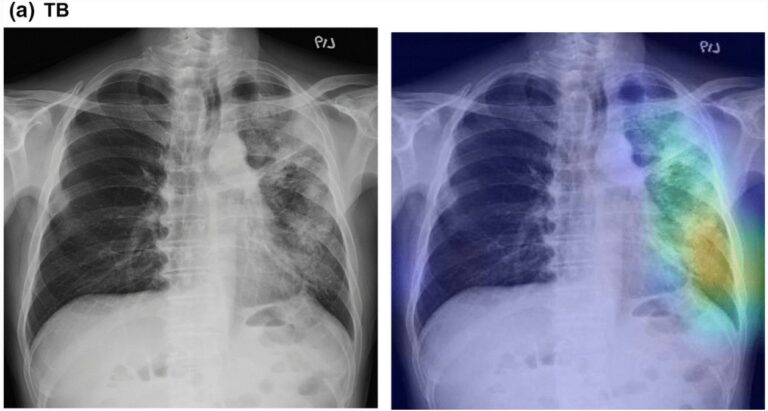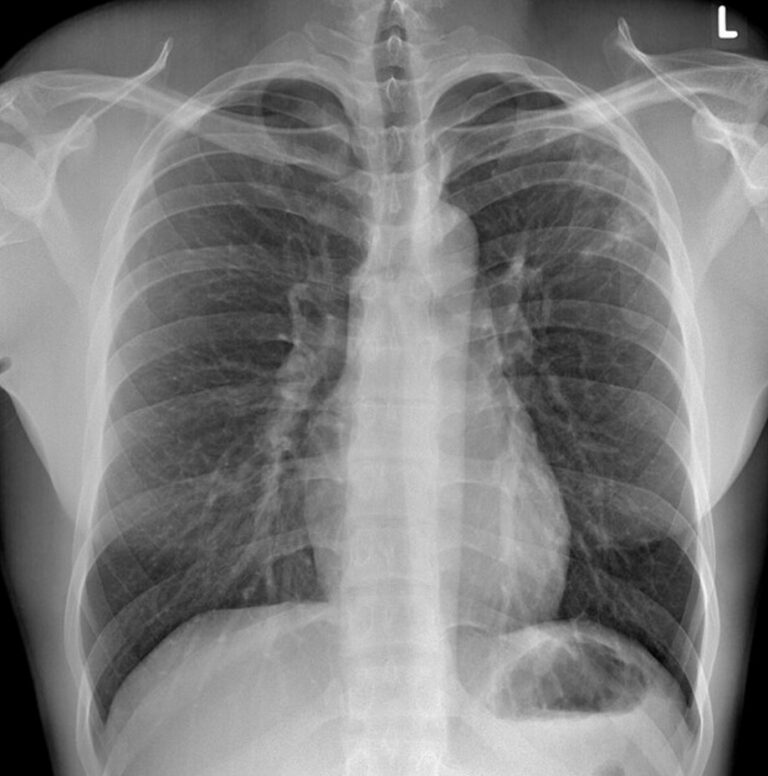
A deep learning model using chest X-ray to identify TB and NTM-LD patients
The authors of this study aimed to evaluate whether artificial intelligence, specifically a deep neural network (DNN), was able to distinguish between tuberculosis (TB) or nontuberculous mycobacterial lung disease (NTM-LD) patients through chest X-rays (CXRs) from suspected mycobacterial lung disease. A total of 1,500 CXRs from two hospitals were retrospectively collected and evaluated. They determined that the developed DNN model










